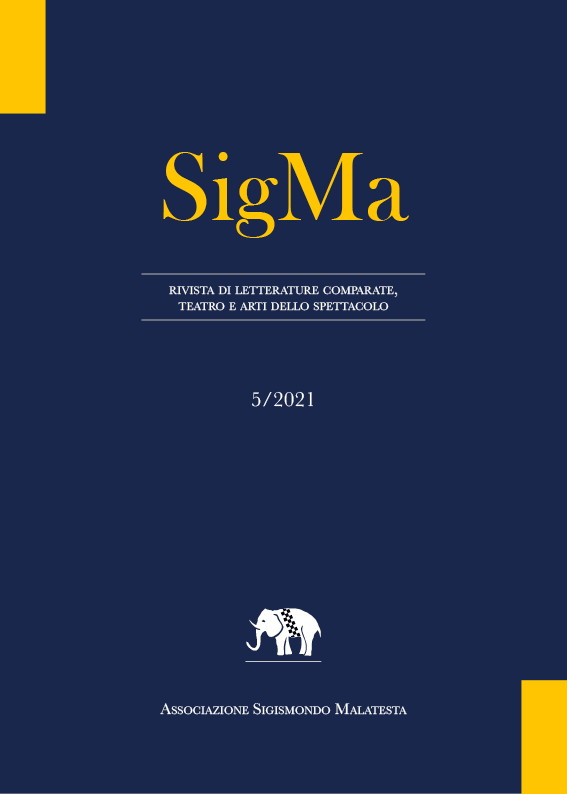Stalin follies. Un esempio di musical sovietico
Abstract
Le commedie musicali russe tra il 1936 e i primi anni Cinquanta sono caratterizzate da un’accentuazione crescente del lato propagandistico e ideologico. La definizione di cinema totalitario (e in questo senso di commedia musicale totalitaria) credo non sia fuori luogo. Oggi, quelle commedie musicali, a eccezione L’allegra brigata che apre in modo originale la serie (1934), sono tutte intollerabili se se ne analizza il contenuto, se si guardano come prodotti del mito staliniano dell’Unione Sovietica Va tuttavia sottolineato un elemento importante: la grande professionalità della confezione, dovuta al lavoro di Aleksandrov, allievo di Ejzenštejn, che collabora con professionisti della musica (Lebedev-Kumač–Dunaevskij) e della danza e con interpreti noti come Ljubov’ Orlova.
Downloads
SigMa pubblica in internet, ad accesso aperto, con licenza:
|
|
CCPL Creative Commons Attribuzione |
L'autore conserva il copyright sul suo contributo, consentendo tuttavia a chiunque "di riprodurre, distribuire, comunicare al pubblico, esporre in pubblico, rappresentare, eseguire e recitare l'opera", purché siano correttamente citati l'autore e il titolo della rivista. L’autore, al momento della proposta di pubblicazione, è inoltre tenuto a dichiarare che il contenuto e l’organizzazione dell’opera è originale e non compromette in alcun modo i diritti di terzi, né gli obblighi connessi alla salvaguardia di diritti morali ed economici di altri autori o di altri aventi diritto, sia per testi, immagini, foto, tabelle, sia per altre parti di cui il contributo può essere composto. L’autore dichiara altresì di essere a conoscenza delle sanzioni previste dal codice penale e dalle leggi speciali per l’ipotesi di falsità in atti ed uso di atti falsi, e che pertanto Reti Medievali è esente da qualsiasi responsabilità di qualsivoglia natura, civile, amministrativa o penale, e sarà dall'autore tenuta indenne da qualsiasi richiesta o rivendicazione da parte di terzi.

